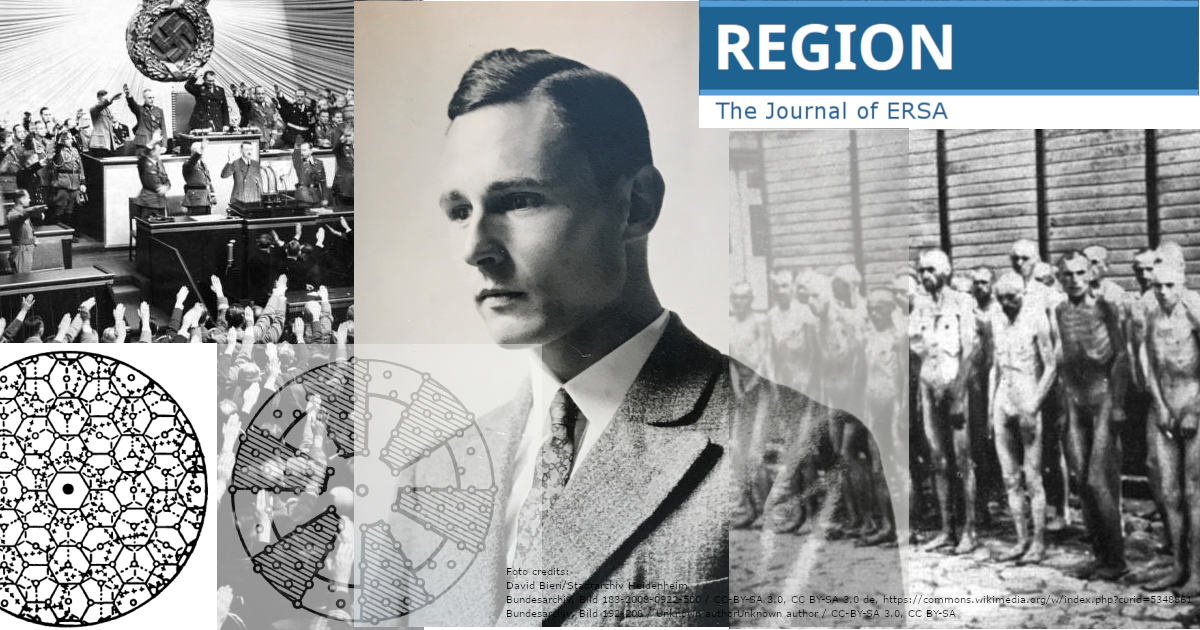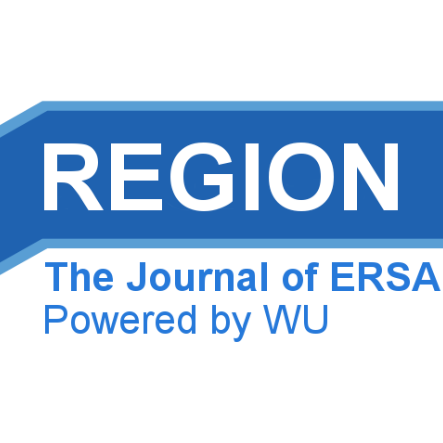Spatial Economics and Totalitarian Temptations
The Complex Biography of August Lösch (1906-1945)
DOI:
https://doi.org/10.18335/region.v10i3.490Abstract
Among the German spatial economists August Lösch is arguably the one who has had the biggest lasting influence on international academic literature. After his death in May 1945, a legend was created according to which he was a fierce opponent to national socialism. This was part of the attempts of his former colleagues and of the German economics community at large to disguise the extent of their own involvement and their agency in advising economic and social policies of the Nazi regime. The political context of spatial planning during the Second World War was particularly damning as it in many cases presupposed genocides on nations such as Poles and Russians and on religious groups such as Jews. It was precisely with regards to Eastern Europe that Lösch’s theoretical contributions were deemed to be particularly valuable. However, the legend of his supposed opposition contained a grain of truth as he was indeed appalled by central aspects of Nazi ideology. Yet, the ability of a totalitarian regime such as the “Third Reich” to integrate the contributions of a brilliant mind and somebody who saw himself as an independent and unpolitical scholar into its decentralized and collaborative spatial research apparatus is what makes Lösch’s biography particularly interesting and relevant today.

Downloads
Published
How to Cite
Issue
Section
License
Copyright (c) 2023 Gunnar Take

This work is licensed under a Creative Commons Attribution 4.0 International License.
REGION is an open journal, and uses the standard Creative Commons license: Copyright We want authors to retain the maximum control over their work consistent with the first goal. For this reason, authors who publish in REGION will release their articles under the Creative Commons Attribution license. This license allows anyone to copy and distribute the article provided that appropriate attribution is given to REGION and the authors. For details of the rights authors grant users of their work, see the "human-readable summary" of the license, with a link to the full license. (Note that "you" refers to a user, not an author, in the summary.) Upon submission, the authors agree that the following three items are true: 1) The manuscript named above: a) represents valid work and neither it nor any other that I have written with substantially similar content has been published before in any form except as a preprint, b) is not concurrently submitted to another publication, and c) does not infringe anyone’s copyright. The Author(s) holds ERSA, WU, REGION, and the Editors of REGION harmless against all copyright claims. d) I have, or a coauthor has, had sufficient access to the data to verify the manuscript’s scientific integrity. 2) If asked, I will provide or fully cooperate in providing the data on which the manuscript is based so the editors or their assignees can examine it (where possible) 3) For papers with more than one author, I as the submitter have the permission of the coauthors to submit this work, and all authors agree that the corresponding author will be the main correspondent with the editorial office, and review the edited manuscript and proof. If there is only one author, I will be the corresponding author and agree to handle these responsibilities.




